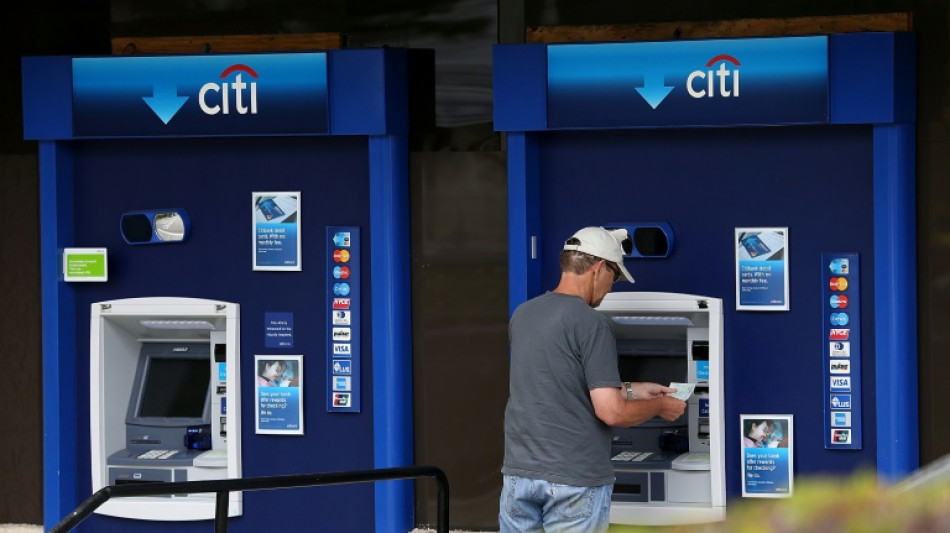
SCS
0.0200


Robust dealmaking activity and strong trading results helped boost US bank earnings Tuesday despite lingering worries about a softening job market and a potentially overvalued stock market.
Profits rose in the third quarter at JPMorgan Chase and three other US lending giants, reflecting strength in core business areas and the still-healthy condition of many consumers even after a lengthy stretch of persistently high costs that have stretched low-income households.
At JPMorgan, profits were $14.4 billion, up 12 percent from the year-ago level, with revenues of $46.4 billion, up 9 percent.
The bank, the biggest US lender in terms of assets, reported somewhat higher credit costs in the quarter as it disclosed details about a $170 million hit from the bankruptcy of Tricolor, a subprime auto lender.
But JPMorgan executives reiterated that consumers remain generally "resilient" and mostly on time with credit card payments, a tone echoed by other large banks.
"We've been waiting for the so-called consumer recession, but it doesn't materialize," said investment banker and author Christopher Whalen of Whalen Global Advisors.
The large banks "don't do business with subprime" customers, said Whalen, who suspects more troubles involving banks' corporate lending will surface in time.
- Stock market 'frothiness' -
More bank earnings will be released in the coming days, but Tuesday's batch showed increases all around with Citigroup profits rising 16 percent to $3.8 billion, Goldman Sachs up 39 percent to $3.9 billion and Wells Fargo up 9 percent to $5.6 billion.
Goldman Sachs pointed to its role as the "exclusive advisor" to Electronic Arts in a $55 billion deal to go private as it confidently described its merger and acquisition "pipeline" of pending and future deals.
Other banks also touted strong demand for financial advisory service. But they expressed concern about weakening US job data.
"While there have been some signs of a softening, particularly in job growth, the US economy generally remained resilient," said JPMorgan chief executive Jamie Dimon.
"However, there continues to be a heightened degree of uncertainty," said Dimon, pointing to tariffs, the risk of "sticky" inflation and other factors.
Executives also acknowledged concerns that sky-high equity valuations for artificial intelligence companies may be out of hand.
Citigroup Chief Financial Officer Mark Mason said the stream of stock market records suggests "some frothiness in different sectors," adding, "we'll have to see how that ultimately evolves."
- Problem loans limited so far -
Heading into the results, one overhang facing the sector was the question of exposure to a pair of recent high-profile bankruptcies.
Accounts of the collapse of Texas-based Tricolor have pointed to "apparent or alleged fraud," JPMorgan Chief Financial Officer Jeremy Barnum said on a conference call with reporters.
Barnum said it can be difficult to avert all cases where a "motivated party" is committed to deception, but that the firm was looking at fortifying its controls.
"This is not our finest moment," added Dimon, who said colleagues would "scour every issue" in light of the revelations on the case.
Citigroup also disclosed what it called "idiosyncratic downgrades" that more than doubled its corporate non-accrual loans compared with last year.
Mason said Citi had not experienced broad problems within its portfolio, noting the bank was not exposed to Tricolor or to First Brands, a US auto supply firm whose bankruptcy has hit some other lenders, including UBS and Jefferies.
"There's no particular concentration of exposure that I'm worried about," he said.
While the damage from such examples has been limited so far, more cases of problem corporate lending could surface. Whalen said the financial system is still flush from a period of great liquidity due to central bank actions.
"There's been so much credit available," he said. "It's just that they haven't gotten to the point where they're cleaning house."
E.Choi--ThChM